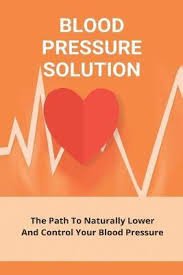Understanding ADHD Symptoms: A Comprehensive Guide
Understanding the symptoms of attention-deficit/hyperactivity disorder (ADHD) is essential not only for people who are living with the condition but also for their families, teachers, and medical professionals. Recognizing and properly controlling these symptoms can significantly enhance the quality of life for those who have attention-deficit/hyperactivity disorder (ADHD). Below are six vital tips that can help you completely grasp ADHD symptoms.
Educate Yourself
It is essential to educate yourself about attention-deficit/hyperactivity disorder (ADHD) to comprehend the symptoms of this condition. Gain knowledge about the many forms of attention-deficit/hyperactivity disorder (ADHD), including combined presentation, mostly hyperactive-impulsive, and mostly inattentive.
Learn about the common symptoms, which include trouble concentrating, impulsivity, hyperactivity, disorganization, forgetting things, and difficulty finishing tasks. The underlying neurological abnormalities associated with attention-deficit/hyperactivity disorder (ADHD) can also provide useful insights into the disorder’s symptoms and manifestations.
Recognize Variability
There is a wide range of possible manifestations of attention-deficit/hyperactivity disorder (ADHD), and the intensity of these symptoms can change over time. Some individuals may primarily struggle with inattention, while others may more commonly exhibit behaviors that are characterized by hyperactivity and impulsivity. In Chicago, individuals seeking an ADHD diagnosis have to get admission to specialized clinics and healthcare vendors imparting complete tests.
The symptoms of attention-deficit/hyperactivity disorder (ADHD) can also change depending on factors such as the amount of stress, environmental stressors, and concurrent conditions. While comprehending these symptoms is essential, a thorough evaluation by a trained expert is necessary for an accurate diagnosis. ADHD testing in Chicago, like in many other cities, involves thorough assessments that may include interviews, observation, and standardized tests. Clinicians use these evaluations to differentiate ADHD from other conditions with overlapping symptoms, ensuring appropriate treatment and support.
Consider Comorbidities
Anxiety disorders, depression, learning difficulties, and autism spectrum disorder (ASD) are common problems that frequently coexist with attention-deficit/hyperactivity disorder (ADHD). In addition to making the presentation of ADHD symptoms more difficult, these comorbidities may necessitate the use of additional intervention measures. It is essential for thorough diagnostic and treatment planning to have a solid understanding of how attention-deficit/hyperactivity disorder (ADHD) interacts with other mental health and developmental issues.
Explore Developmental Context
The symptoms of attention-deficit/hyperactivity disorder (ADHD) can change as individuals grow through the various phases of development. Inattention and issues with executive functioning may become more obvious in adolescence and adulthood, although hyperactivity may be more noticeable in children who are in the preschool age range. When the developmental context of ADHD symptoms is understood, it is possible to assist in anticipation of obstacles and the customization of interventions to suit the ever-changing requirements of persons who have ADHD throughout their lifetime. Health secrets of Pickleball
Recognize The Differences Between The Sexes
In girls and women, attention-deficit/hyperactivity disorder (ADHD) is frequently underdiagnosed, in part because of disparities in the presentation of symptoms and the expectations of society. Girls with attention-deficit/hyperactivity disorder (ADHD) may express more subtle symptoms, such as internalized distractibility, emotional dysregulation, and social disengagement.
In contrast, boys with ADHD may exhibit more excessively hyperactive and impulsive behaviors. It is vital to acknowledge these gender differences to guarantee an accurate diagnosis and adequate care for persons of both genders who are afflicted by attention-deficit/hyperactivity disorder (ADHD).
Emphasize Strengths
While attention-deficit/hyperactivity disorder (ADHD) brings several obstacles, it is crucial to acknowledge and capitalize on the strengths associated with the illness. Many people with attention-deficit/hyperactivity disorder are highly creative, innovative, and enthusiastic.
They may thrive in dynamic workplaces and prioritize rapid thinking, problem-solving, and adaptability. People with attention-deficit/hyperactivity disorder (ADHD) can develop self-confidence, resiliency, and a sense of self-efficacy by establishing a strengths-based approach and concentrating on their strengths.
Conclusion
Gaining knowledge of the symptoms of attention-deficit/hyperactivity disorder (ADHD) calls for a multidimensional approach that takes into account individual differences, developmental variables, comorbidities, and strengths. Individuals will be able to acquire a thorough understanding of attention-deficit/hyperactivity disorder (ADHD) and provide improved assistance for those who are afflicted with it if people educate themselves, acknowledge variability, take into consideration developmental contexts and gender differences, and place an emphasis on strengths. You can enable people who have attention-deficit/hyperactivity disorder (ADHD) to thrive and reach their full potential by increasing awareness, empathizing with them, and developing effective intervention measures.







